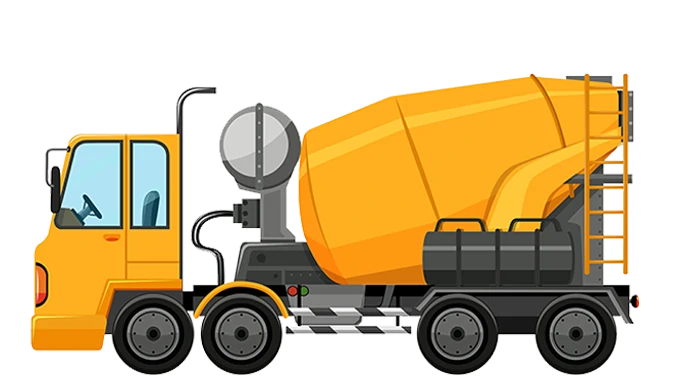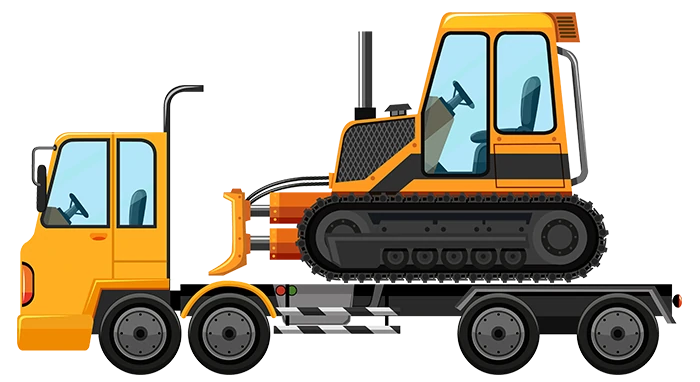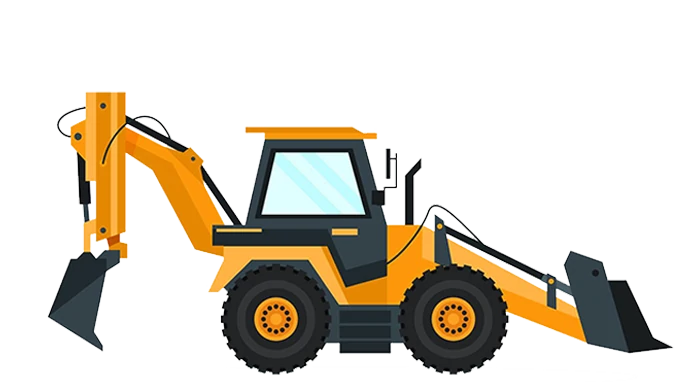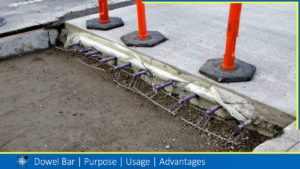What is an Asphalt Paver?
An asphalt paver is a heavy-duty construction machine used to lay asphalt concrete or cement concrete on roadways, parking lots, and other surfaces such as bridges and culverts. An asphalt paver is also known as a road paver or paver finisher. The primary purpose of this equipment is to distribute and shape the asphalt mixture accurately to create a smooth, even surface. The paver ensures the proper thickness and compaction of the asphalt, resulting in a durable and long-lasting road.
How Does an Asphalt Paver Work?
The operation of an asphalt paver is a precise and well-coordinated process. Here’s a step-by-step overview of how the machine works:
- Preparing the Surface: Before the paver comes into action, the surface must be prepared properly. The roadbed is cleaned, graded, and levelled to create a uniform base for the asphalt.
- Asphalt Delivery: Hot mix asphalt (HMA) is transported from the asphalt plant to the construction site in trucks. The paver has a hopper that receives the asphalt and keeps it at an optimal temperature for laying.
- Material Distribution: The paver distributes the asphalt evenly across the road width using a series of augers and conveyors. This ensures a consistent thickness and avoids potential weak spots or irregularities in the finished road.
- Screed Placement: The screed is a crucial component that comes into contact with the freshly laid asphalt. It is responsible for shaping and compacting the asphalt to the desired thickness. The screed can be adjusted to match the road’s specified width and slope.
- Compaction: After the asphalt has been spread and shaped, a roller follows the paver to compact the material further. This step ensures proper density and stability of the road surface.
- Quality Control: Throughout the paving process, quality control measures are implemented to verify that the asphalt meets the required standards for thickness, smoothness, and density.
Also, read: Wet Mix Macadam: Materials | Specification | Construction Process
Importance of Asphalt Paver
The asphalt paver stands out for its ability to efficiently lay asphalt and various pavement finish materials within a shorter timeframe. This makes it a vital and indispensable machinery in ensuring successful road construction projects. Some of the important aspects of the paver machine are:
- Enhanced Efficiency: Asphalt pavers have significantly improved the efficiency of road construction projects. They can cover large areas quickly and precisely, reducing construction time and labour costs.
- Superior Quality: The precise distribution and compaction capabilities of asphalt pavers result in smoother roads with better load-bearing capacity and resistance to wear and tear.
- Safety Benefits: Well-constructed roads provided by asphalt pavers offer improved skid resistance, reducing the risk of accidents and ensuring safer driving conditions.
- Environmentally Friendly: Modern asphalt pavers incorporate eco-friendly features, such as emission controls, that minimize their impact on the environment.
Also, read: What Is Rigid Pavement? | 4 Types Of Rigid Pavement
Advantages of Asphalt Paver
Let’s explore some of the key advantages and significance of the asphalt paver:
- Produces uniform and level surface.
- Better control of thickness and profile of the layer.
- Paver has the facility of precompacting the layer and hence the surface finish is better.
- The initial cost of the mechanical paver is low.
- There is no wastage of Asphalt concrete or wet mix macadam while laying as there is no side flow of the mix.
Disadvantages of Asphalt Paver
- It isn’t easy to adjust the screed every time to vary the thickness of the layer to maintain it at the top level.
- Wear & tear of auger and chain are frequent; as such maintenance costs are high.
- The maximum gap between the auger and the side plate should not be more than 1 5cm, otherwise, the spaces will have to be till manually, which in turn will not be properly compacted leading to difficulty in maintaining the levels.
Also, read: Top 10 Road Construction Equipment
References:
- Indian Road Congress. (1997). Guidelines for Wer Mix Macadam. (IRC: 109-1997.). Indian Road Congress. Jamnagar House, Shahjahan Road. New Delhi-110011
- Bureau of Indian Standards. (1992). Asphalt Paver Finisher—General Requirements. (IS 3251 (part 2): 1992). Bureau of Indian Standards
- Bureau of Indian Standards. (1965).Specification for Asphalt Paver Finisher. (IS 3251: 1965). Bureau of Indian Standards
- Wikipedia contributors. (2023). Paver (vehicle). Wikipedia. https://en.wikipedia.org/wiki/Paver_(vehicle)
![]()








One aspect that really stood out to me was the discussion about the efficiency and precision of these machines. The fact that they can lay down asphalt with remarkable accuracy and consistency not only speeds up the construction process but also contributes to the overall safety and durability of the roads. It’s incredible to think about the technology and engineering that goes into these machines to achieve such results.